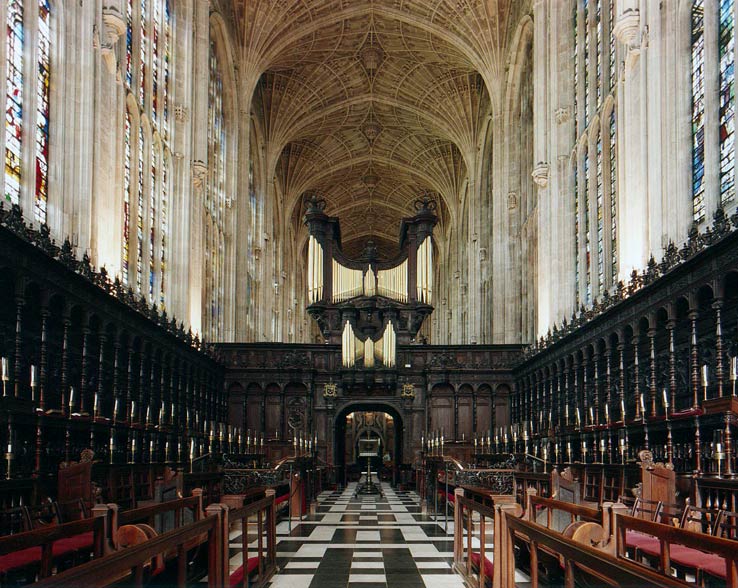Moving across the channel from my last two posts about songs originating in France, I give you the first of many carols from the British Isles that deserve more than their current share of attention. I'm admittedly a little biased toward this one, as I know via my dad that it was my late grandmother's favorite Christmas carol. I didn't get to know her through the lens of adulthood, but knowing what I do know about her and that side of the family, it makes sense that she would be fond of an English carol, since the Walker branch, so far as I've been told, and so far as there are any still out there, was about as tea-sippingly English as it gets. If I had any knowledge of our genealogy beyond the late-19th century I might be able to figure out if any of them had a connection with King's College Cambridge, since that is the modern home of "Once in Royal David's City," to the extent that a carol can have a home, anyway. If they were as English as I've been led to believe, I bet they'd be a little bummed to learn that one of their favorite carols, and one of England's, is pretty decidedly Irish in origin.
The story of this one is pretty straightforward, especially compared to those I've told to date on this blog. The "hymn," like so many others, was first written as a music-less poem by Cecil Frances Humphreys. Humphreys (born 1818) grew up writing poetry, and, being a Dublin-born protestant, held some strong religious convictions, especially in support of the Oxford Movement. As briefly as I can put it, the Oxford Movement advocated, with no small amount of wishy-washyness, that maybe some parts of the whole Catholic thing were, you know, not that bad, and would it be that big of a deal if we kindaaaa sortaaa brought some of those back into the Anglican Church and, oh, I don't know, came back under the rule of the pope.
...that did not pan out...
That's really neither here nor there (same as all the places you'll find Anglican-Catholics, am I right??), since shortly after penning "Once In Royal David's City" in 1848 Miss Humphreys became Mrs. Alexander through her marriage to William Alexander, a clergyman in the Church of Ireland (the Irish equivalent to the Anglican Church in England, i.e. definitely not Roman Catholic). The poem may be much older, but was originally published as part of a collection of Humphreys' poems entitled Hymns for Little Children. The collection was discovered shortly thereafter by Henry Gauntlett, one of the most renowned organists and hymnists of the times. He set Alexander's poem to an original tune he called "Irby" and the carol as we know it was born. Later, Arthur Henry Mann, the musical director at King's College Cambridge, arranged his own version of the hymn. Mann is also responsible for the famous Festival of Nine Lessons, a festival of carols performed every Christmas at the King's College Chapel. "Once In Royal David's City" has served as the processional in every performance since 1919.
As buildings go, it's alright
Lyrically, "Once" is pretty simple, having been written for children, after all. Alexander wrote 6 verses of 6 lines, each one fairly easy to digest. For example, the first verse goes:
Once in royal David's city
Once in royal David's city
Stood a lowly cattle shed,
Where a mother lay her baby
In a manger for His bed:
Mary was that mother mild,
Jesus Christ her little child
As the song gained notoriety Alexander made it known that she wrote the song as a way to simplify the Apostles' Creed into language that children could comprehend. And... that's about it. It's a simple telling of the Christmas story that reinforces some core Christian values. But that does nothing to cheapen its ethereal quality, especially when sung by the King's College Choir or the Mormon Tabernacle Choir. In Christmas carols, as in so many facets of religion, sometimes less is more.


No comments:
Post a Comment